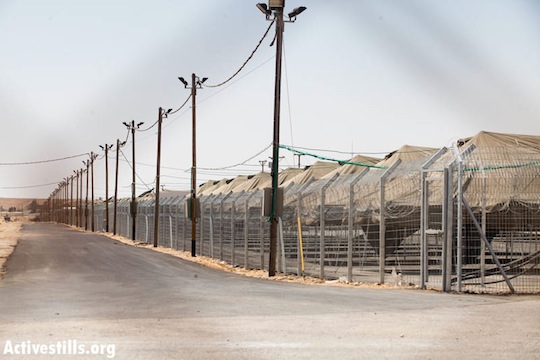Israeli-Jewish identity should be one that pursues justice for the collective and perseveres in the fight against oppression. Plans to destroy hundreds of homes or imprison thousands of refugees defile and contradict all that is good in that very identity.
By Moriel Rothman
Scenario One. Imagine: You wake up in a place that is not familiar. You are disoriented: this is not your home. And then, it floods over you like a wave: your home was destroyed. So was your brother’s home. And your parents’ home. And the place that you worked. And your children’s school. And your entire village. And the entire village next to yours. And five more.
Scenario One could be a description of a part of the Nakba, the Arabic word for “catastrophe,” which is used to describe the traumas and expulsions Palestinians underwent in 1948. Or, it could be a description of what will happen next month in the South Hebron Hills of the West Bank, in what will be known as “Firing Zone 918”, should the Israeli government have its way. Over 1,500 Palestinians face expulsion. Over 8 villages face demolition. Over 30% of Area C in the West Bank is defined as “Firing Zones.” Palestinians can build freely in less than 1 percent of Area C.
These numbers are shocking. But numbers can also distort reality: the reality of people being expelled from their homes, their villages destroyed, their lives wrecked for no reason other than the expansionist and racist goals of a foreign occupying military power. Imagine the fury, the despair, the sound of bulldozers running over your home.
Scenario Two. Imagine: You wake up in a place that is not familiar. You are disoriented: this is not your home. And then, it floods over you like a wave: you were imprisoned in a massive facility. So was your sister. And your friends. And your children. You are guarded by men with lighter skin and big guns and stern expressions. You are surrounded by other people with skin the color of your skin who are also confused, afraid. 15,000 others.
Scenario Two could be a description of any massive ethnic round-up in history. Or it could be a description of what will happen next week if the Israeli government has its way and begins to round up 15,000 refugees and asylum seekers from Sudan, and transfer them to a massive detention facility in the Negev, starting on Monday, October 15th. There are over 60,000 African asylum seekers in Israel.
Even numbers like these, though, can distort reality: the reality of people being who have fled death and torture, looking for safety, being rounded up en masse and stuck in a detention center by a government who sees them not as humans who are suffering but as “invaders,” as “outsiders,” as “non-Jews.” Imagine the fear, the terror, the feeling of being trapped and completely at the mercy of people who are struggling not to see you as a person.
I can’t imagine it, fully, but I know with all of my soul that these two things must not happen. I am an Israeli and a Jew. These identities were both assigned to me at birth, but they are also identities I have chosen to reaffirm again and again, and that I am proud of. I am proud to be an Israeli, even as I have no pride in the Israeli government. I am proud to be part of a culture of warmth despite hardship, of perseverance and passion and concern with the collective. And I am proud to be a Jew, even as I feel repulsed by much of the mainstream Jewish establishment, proud of our history of struggling against oppression, of pursuing justice, of speaking truth to power.
Israeli-Jewish identity, then, should be one that passionately pursues justice for the collective, one that preservers in the fight against oppression. Plans to destroy hundreds of homes or to imprison thousands of refugees are plans that defile and contradict all that is good in Israeli and Jewish identities. And indeed, there are efforts underway by various groups to prevent these twin injustices. Israeli activists and groups are monitoring the situation in the “918 Firing Zone,” working on the legal ends of the story and planning potential responses and campaigns if and when Israel decides to move forward with the destruction. And on the more immediate front, a group of U.S. Jews under the banner of “Right Now” is spearheading a letter campaign to Israeli authorities, telling them “not in my name,” affirming that it is anti-Jewish to oppress the stranger.
I think it is upon all of us, regardless of background or views on the conflict, to imagine the feeling of these refugees or these people living in “Firing Zone 918” before we allow ourselves to slip into the comfortable world of justifications, rationalizations, the world of “it has to be this way.” It does not have to be this way. Although it may sound glib and trite and cliche, sometimes cliches actually hold the most truth: before you justify, rationalize or ignore either of these cases, imagine if this were to happen to you.
Moriel Rothman is an American-Israeli activist and writer based in Jerusalem.

